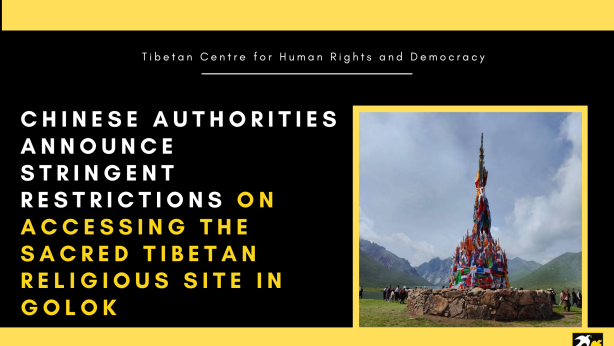Code of Conduct for Businesses Operating in Tibet
On 29 June the Tibetan Centre for Human Rights and Democracy (TCHRD) will release a code of conduct for businesses operating in Tibet. The code of conduct highlights the major human rights issues in Tibet and their human rights obligations. In 35 articles divided into eight categories, the code of conduct outlines how businesses can avoid contributing to or participating in human rights abuses in Tibet.
The code of conduct does not make any new demands or place extra requirements on businesses operating in Tibet. Instead, the code of conduct draws upon existing legal standards and standards accepted and endorsed by the People’s Republic of China (PRC). Since their release in 2011, the UN Guiding Principles on Business and Human Rights defined businesses’ human rights obligations. The Guiding Principles have been endorsed by the PRC. The code of conduct also draws heavily on the Chinese Chamber of Commerce of Metals, Minerals and Chemicals Imports and Exports (CCCMC) Guidelines for Chinese businesses operating outside of the PRC. Even though the CCCMC Guidelines are not official government standards, they have been endorsed by the PRC and held as an example of the PRC’s commitment to corporate social responsibility.
Drawing on these two sources and other international standards, the code of conduct outlines how businesses operating in Tibet can fulfill their obligation to respect human rights and still do business in Tibet. As more multinational corporations are increasing their investment in the PRC and Tibetan areas it is crucial that they fulfill their human rights obligations and do not become complicit in human rights abuses in Tibet. By laying out how corporations can respect human rights in Tibet, TCHRD hopes businesses will contribute to improving the human rights situation in Tibet. Protecting and respecting human rights not only benefits the impacted communities, but it is good for businesses and, ultimately, the host government.
The code of conduct was researched and drafted by TCHRD’s legal research officer Mr. John Gaudette. The research included Mr. Gaudette representing TCHRD at the UN Forum on Business and Human Rights in Geneva. At the UN Forum, Mr. Gaudette spoke with representatives of governments, business, and civil society. The trip to the UN Forum built upon discussions with human rights NGOs, lawyers, and businesses in Washington DC, Colorado, and California. TCHRD also solicited comments from Tibetan activists living in Dharamshala.
With its basis in established practice and drawing on discussions with stakeholders including Tibetan activists, the code of conduct establishes a baseline for businesses in Tibet. If businesses fail to follow the code of conduct, human rights groups and activists can hold them accountable. Rather than make arguments about a business’s human rights obligations from scratch or appealing to overly broad principles, the code of conduct is a practical guide for how businesses should respect human rights in Tibet.
To download the full text of the Code of Conduct, click here


